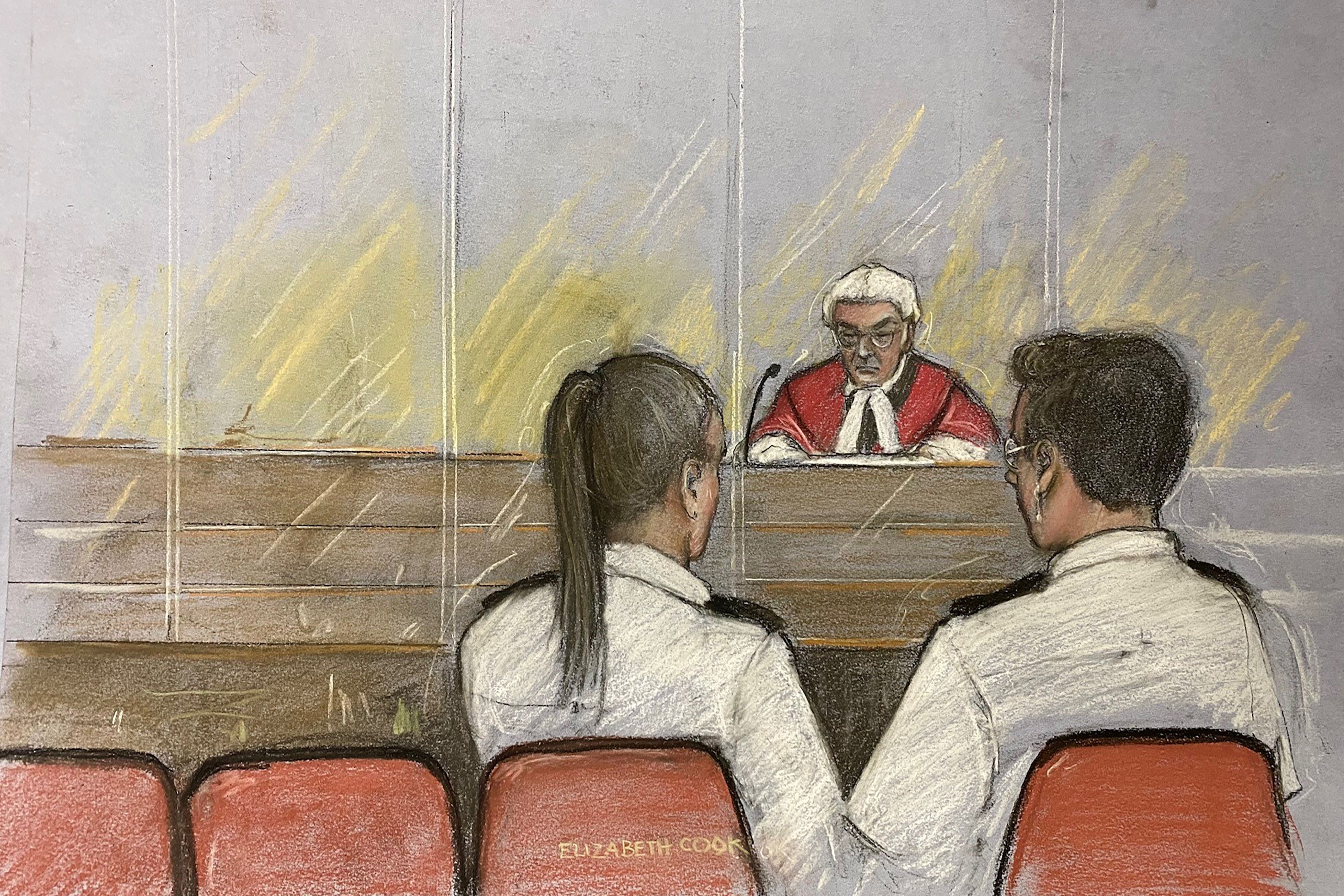Justice secretary vows quick law change after Lucy Letby refused to appear for her sentencing
Labour told the Conservatives to ‘get on with’ plans to compel offenders to appear in court for sentencings

The Justice Secretary has vowed to change the law at the “earliest opportunity” to ensure serious offenders can be forced to attend their sentencing following the refusal by child murderer Lucy Letby to appear in the dock.
The 33-year-old was not present to hear words of condemnation from the judge and victims’ families at Manchester Crown Court on Monday, prompting further outrage.
Letby was given a whole-life order at the hearing after last week being convicted of the murders of seven babies and the attempted murders of six more.
Earlier this year, Justice Secretary Alex Chalk said the government was “committed” to changing the law in a way that would allow criminals to be forced to attend their sentencing after the killers of Olivia Pratt-Korbel, Zara Aleena and Sabina Nessa also refused to stand in the dock for their own.
Mr Chalk said on Monday: “Lucy Letby is not just a murderer but a coward, whose failure to face her victims’ families, refusing to hear their impact statements and society’s condemnation, is the final insult.
“We are looking to change the law so offenders can be compelled to attend sentencing hearings.”
He added: “Cases like these make me even more determined to make sure the worst offenders attend court to face justice when ordered by the judge.
“That’s why we are looking at options to change the law at the earliest opportunity to ensure that in the silence that follows the clang of the prison gate, society’s condemnation will be ringing in prisoners’ ears.”
The PA news agency understands plans could be put forward as early as the autumn, as soon as parliamentary time allows.
But Labour leader Sir Keir Starmer accused the government of “dragging its heels” over making the change.
He said: “I hope the government will do it because I think it can be done very quickly.
“If they don’t, we will force an amendment to the appropriate legislation. But actually, my position is to invite the government to get on with it, to offer Labour’s support so this could go through very, very quickly.
“This isn’t the first case. The government has been dragging its heels on this. Get on with it, for the sake of these victims, and of course, the other cases that went before it.”
Labour’s shadow justice secretary Steve Reed quoted Mr Chalk’s words back to him on Twitter, and criticised the pace of delivery, saying: “‘Looking to change’? Labour called for the law to be changed last year to force criminals to attend sentencing.
“Your predecessor said he agreed but did nothing. Now you are only ‘looking at’ it. Victims have suffered enough. Get on with it.”
Having once seen someone in the United States bound and gagged in court, I don’t think that that is an appropriate solution
Prime Minister Rishi Sunak told broadcasters on Monday: “It’s cowardly that people who commit such horrendous crimes do not face their victims and hear first-hand the impact that their crimes have had on them and their families and loved ones.
“We are looking, and have been, at changing the law to make sure that that happens and that’s something that we’ll bring forward in due course.”
But Lord Thomas, a cross-bench peer and former Lord Chief Justice, voiced caution on any attempt to use force to require people to attend.
He told BBC Radio 4’s PM programme that for sentences short of whole-life terms the “obvious” answer is to have powers to add to the sentence if the person convicted fails to attend.
But he said the threat of a longer sentence would be “completely pointless” in the case of someone already receiving a whole-life order, such as Letby.
Addressing the option of forcibly requiring the convicted to attend the sentencing, he added: “Having once seen someone in the United States bound and gagged in court, I don’t think that that is an appropriate solution.”
He said one alternative would be to broadcast the judge’s remarks to the person’s cell.
Pressure is also mounting on the government to give greater powers to an inquiry it has announced into Letby’s crimes by putting it on a statutory footing and ensuring it is led by a judge.
Downing Street suggested the inquiry could be put on a statutory footing but could not say when terms of reference would be published.
Children’s minister Claire Coutinho had earlier argued that a non-statutory inquiry would be “much quicker”.



Bookmark popover
Removed from bookmarks